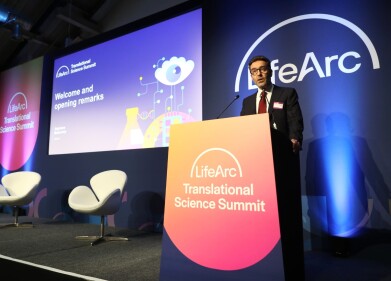News & Views
Biotechnology and Bioenergy Networks: First Phase Studies Under Way. Southampton Looks into Energy from Food Waste
Jan 10 2014
The University of Southampton is to share in £18 million of funding which will support 13 new industry-academia networks in industrial biotechnology and bioenergy recently announced by the Biotechnology and Biological Sciences Research Council (BBSRC).
Universities and Science Minister David Willetts said: “To get ahead in the global race we need to turn our world-beating science and research into world-beating products and services, as set out in our Industrial Strategy.
“These networks will unlock the huge potential of biotechnology and bioenergy, such as finding innovative ways to use leftover food, and creating chemicals from plant cells.”
The University of Southampton, in conjunction with the University of Warwick, will lead the Anaerobic Digestion Network, which will realise the potential of organic waste and by-products to produce renewable energy sources, chemicals and novel bio-based materials
Anaerobic Digestion is a natural process where plant and animal materials (biomass) are broken down by micro-organisms in the absence of air. Naturally occurring micro-organisms digest the biomass, which releases a methane-rich gas (biogas) that can be used to generate renewable heat and power and thus reduce fossil fuel use and greenhouse gas emissions. Rapid advances in our fundamental understanding of these microbial communities, however, mean these systems could also be manipulated to produce other valuable bio-based products.
Professor Charles Banks, Head of Water and Environmental Engineering at the University of Southampton and Director of the Anaerobic Digestion Network, says: “Anaerobic digestion is an established technology for waste management and bioenergy production, but could benefit hugely through knowledge transfer from recent exciting advances in industrial biotechnology.
“Bringing academia and industry together will unblock the route to exploiting these advances, allowing UK business to move to the forefront of international development in anaerobic biotechnology.”
Digital Edition
Lab Asia 31.2 April 2024
April 2024
In This Edition Chromatography Articles - Approaches to troubleshooting an SPE method for the analysis of oligonucleotides (pt i) - High-precision liquid flow processes demand full fluidic c...
View all digital editions
Events
May 14 2024 Oklahoma City, OK, USA
May 15 2024 Birmingham, UK
May 21 2024 Lagos, Nigeria
May 22 2024 Basel, Switzerland
Scientific Laboratory Show & Conference 2024
May 22 2024 Nottingham, UK







.jpg)










